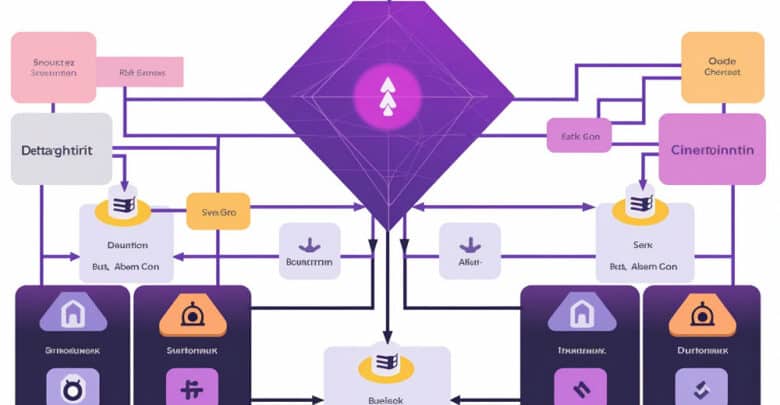Ethereum’s Decun Upgrades Will Reduce Rollup Speed And Costs – Experts

The Ethereum network is set to implement the Dencun upgrade across three testnets of the protocol in 2024. According to Ethereum developers, the move will significantly improve transaction speeds on layer-2 rollups and reduce gas fees.
Bolstering Ethereum Improvement Proposals
The Dencun network upgrade, which began on the Goerli testnet on January 17, established several Ethereum Improvement Proposals (EIPs). EIP-4844 is the first to integrate proto-danksharding, a much-anticipated enhancement to lower L2 transaction fees.
On the other hand, Dencun’s deployment to Goerli was four hours delayed due to an issue that prevented the testnet from completing the upgrade. Nebojsa Urosevic, a co-founder of the Ethereum development platform Tenderly, explained that the failure, which sprang from a flaw in Prysm, Ethereum’s proof-of-stake (PoS) client, made it difficult for the network to synchronize with the nodes.
Urosevic, who also serves as senior vice president of Tenderly’s technical team, highlighted that client synchronization delays are not uncommon. He then added that the bug was quickly detected and fixed.
Ethereum Foundation Speaks On Critical Flaws
Tim Beiko, the protocol lead at the Ethereum Foundation, revealed insights into a critical issue entrenched in the historical procedures of Ethereum’s Beacon Chain. He shared his findings in a comprehensive review of the last All Core Developers Execution Call on January 18.
This historical procedure is essential since it is a legacy mechanism designed to handle the computational load associated with the blockchain’s current state. Beiko further revealed the cause of the flaw in Prysm, Ethereum’s proof-of-stake client.
He said one of the most critical components of the situation is that Prysm improperly set the historical roots to zero. According to Beiko, this procedure resulted in unforeseen consequences, including a domino effect that significantly hampered the Goerli testnet’s ability to complete the Dencun upgrade correctly.
The Dencun Process
Adopting nine different Ethereum Improvement Proposals (EIPs) is a notable part of the Dencun upgrade, as detailed on the official Ethereum blog. Other notable ones include proto-danksharding and blob transactions, signifying a significant step toward enhancing Ethereum’s scalability.
Proto-danksharding is a critical component that introduces blob-carrying transactions, which differs from the standard call data approach. Storing transaction data in compressed format could increase the Ethereum network’s efficiency and scalability.
After a successful test on the Goerli testnet, the Dencun update will be deployed simultaneously on the Sepolia and Holesky testnets. Urosevic stated that the successful deployment across all three testnets would determine whether this upgrade will be implemented on Ethereum’s mainnet.
Improving Scalability And Reducing Costs
According to Phillippe Schommers, the infrastructure director of Gnosis, a well-known Ethereum sidechain, the Dencun upgrade will herald a new era of increased scalability and lower costs for Layer 2 solutions. The upgrade will allocate extra block space to Layer 2s while optimizing expenses.
Stefan Urosevic, reflecting Schommers’ perspective, emphasizes the need for storage improvements in the Dencun project. He elaborates on the advantages of Layer 2 networks, claiming that storing data on Layer 1 more efficiently will erode blobs every two weeks.
The Cost-Effective Alternative
According to Urosevic, smart data management makes blobs a more cost-effective alternative to typical transaction call data, which linger indefinitely. The Dencun improvement has far-reaching ramifications, including decreased gas rates and faster transaction processing, paving the way for developing complex Layer 2 apps.
Urosevic estimates a tenfold reduction in rollup transaction costs, depending on the need for blob space. According to Anurag Arjun, co-founder of Avail, rollups are the key beneficiaries of this update since they’ll experience increased economic viability and scalability due to lower operational costs.
Accordingly, protocols such as Avail, which use zero-knowledge Ethereum Virtual Machine Validium, will become temporary solutions to meet block space demands. Recent benchmarks show a 90% reduction in transaction fees by routing transaction data to Avail rather than the Ethereum mainnet. Thus, Urosevic sees the Dencun upgrade as an initiative that directly addresses scalability on the mainnet.
Tokenhell produces content exposure for over 5,000 crypto companies and you can be one of them too! Contact at info@tokenhell.com if you have any questions. Cryptocurrencies are highly volatile, conduct your own research before making any investment decisions. Some of the posts on this website are guest posts or paid posts that are not written by Tokenhell authors (namely Crypto Cable , Sponsored Articles and Press Release content) and the views expressed in these types of posts do not reflect the views of this website. Tokenhell is not responsible for the content, accuracy, quality, advertising, products or any other content or banners (ad space) posted on the site. Read full terms and conditions / disclaimer.







